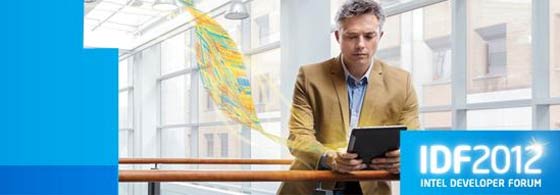Intel has cut its projection for Q3 revenue to $13.2 billion from an earlier $14.8 billion to $13.8 billion estimated range. The notice of the approximate $1 billion shortfall caused the value of Intel shares to slide by 3.6 per cent. The company says that less people are interested in buying new desktops and laptops, rather investing their hard earned cash in new tablets and smartphones. Also Intel’s enterprise sales are weak for the first time in about two years.
Intel’s chips are in four out of five PCs and laptops sold and it has been experiencing a noticeable slowdown in sales preceding the release of Windows 8. The summer is a traditional slow time for sales and PC manufacturers are said to be reducing inventories which they don’t want to be holding in the face of the uncertain success of Windows 8. In sympathy shares by NVIDIA and AMD fell by 2.4 per cent and 5.7 per cent respectively, they are also heavily dependent upon traditional desktop/laptop computer sales for business.
In previous quarters sales to enterprise and into emerging markets like China had buffered Intel from the PC market decline we have seen in Europe and the US. However China experienced its first ever year on year decline in PC shipments, observed in Q2 this year. Talking to the Wall Street Journal, Craig Berger, an analyst with FBR Capital Markets said “China is horribly weak. It seems worse than what they are telling us”.

The Intel Developer Forum (IDF 2012) is due to start on Tuesday 11th September in San Francisco where new Ultrabooks and touch screen hybrids are expected to be on display. (HEXUS will be there) These are the products with which Intel hopes it will be able to fight back against the ARM based tide of tablets and smartphones. That is at least until Intel’s own mobile CPUs are ready to compete head on with ARM chipsets in their established markets.
Intel seems to be thinking the grass is always greener on the other side of the fence but according to ARM it is not. Earlier in the week we reported that ARM is expecting a slowdown in the second half of 2012. The company is reducing recruitment activity due to the “uncertainty of the business climate”. Also Deutsche Bank downgraded ARM from hold to sell partly due to its analysts expecting Intel to come out with much more credible power efficient smartphone/tablet CPUs during 2013/14.













